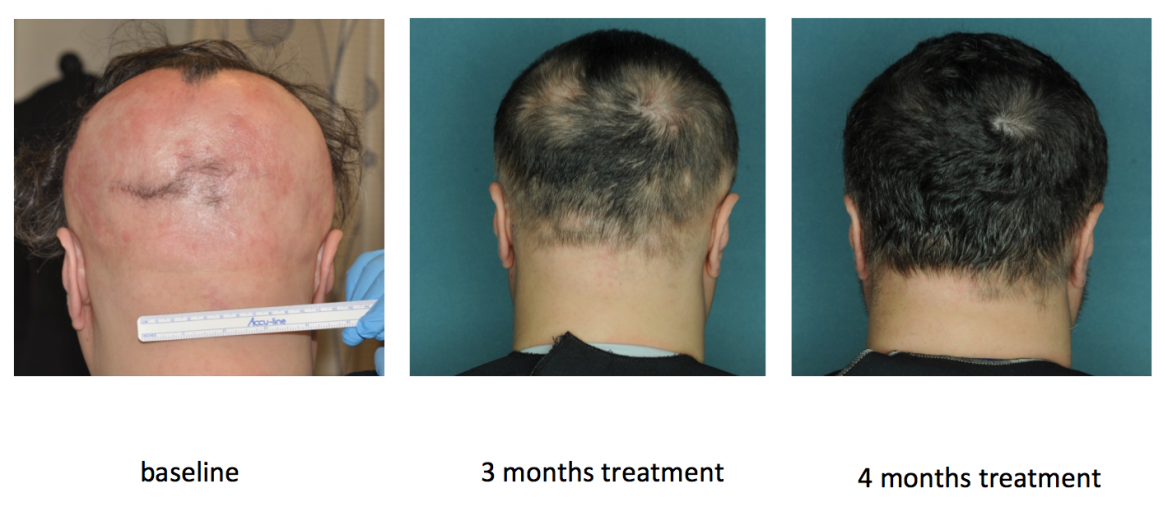Findings from an
«Although our study was small, it provides crucial evidence that JAK inhibitors may constitute the first effective treatment for people with alopecia areata," said Julian
Alopecia areata, the second most common form of hair loss, can occur at any age and affects men and women equally. The disease usually causes hair loss on the scalp, but some patients also experience facial and body hair loss with devastating consequences, particularly in children. Currently, there are no known treatments that can completely restore hair.
Previously, the Columbia researchers identified the specific immune cells and the dominant inflammatory signaling pathways responsible for attacking the hair follicle in alopecia areata, putting them into a dormant state. Subsequent experiments with mouse and human hair follicles showed that topical and oral drugs that inhibit the Janus kinase (JAK) family of enzymes, known as JAK inhibitors, reawaken these dormant follicles by blocking inflammatory signaling. Two such JAK inhibitors already approved by the
«These disorders are both characterized by dysregulated signaling pathways, similar to alopecia areata, which is dominated by the interferon signaling pathway. Even though the diseases are very different, this common feature gave us the initial idea to test JAK inhibitors in people with alopecia," said Raphael Clynes, MD, PhD, adjunct associate professor of dermatology at Columbia.

To test this hypothesis, the researchers initiated a small,
Nine of the patients had hair regrowth of 50 percent or greater. By the end of the treatment period, 77 percent of those who responded to the therapy achieved hair regrowth of more than 95 percent. A third of the responders had significant hair loss in the
Skin biopsies performed before, during, and after treatment also revealed that responders had a reduction in levels of interferon signaling and cytotoxic T
«We are very excited about the use of biomarkers to follow the response of patients to this treatment," said Angela M. Christiano, PhD, the Richard and Mildred Rhodebeck Professor of Dermatology and professor of genetics and development at Columbia. «This will allow us to monitor improvements in their gene expression signatures even before hair growth appears.»
The drug was
«Our findings suggest that initial treatment induces a high rate of disease remissions in patients with moderate to severe alopecia areata but maintenance therapy may be needed," said Dr.
In the Stanford/Yale study, a series of patients with moderate to severe alopecia areata responded to another JAK inhibitor called tofacitinib. «Together, the two studies show that we’re on the right track," said Dr. Christiano, who is a
The CUMC research team plans to expand their studies to include testing these drugs in other conditions such as vitiligo, scarring alopecias, and androgenetic alopecia (pattern baldness) where they may also show efficacy. «We expect JAK inhibitors to have widespread utility across many forms of hair loss based on their mechanism of action in both the hair follicle and immune cells," said Dr. Christiano.


